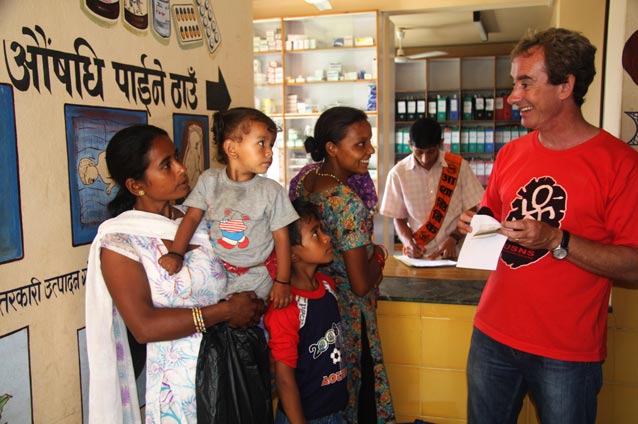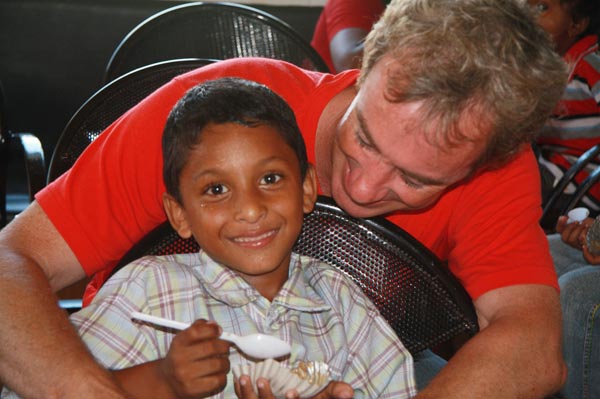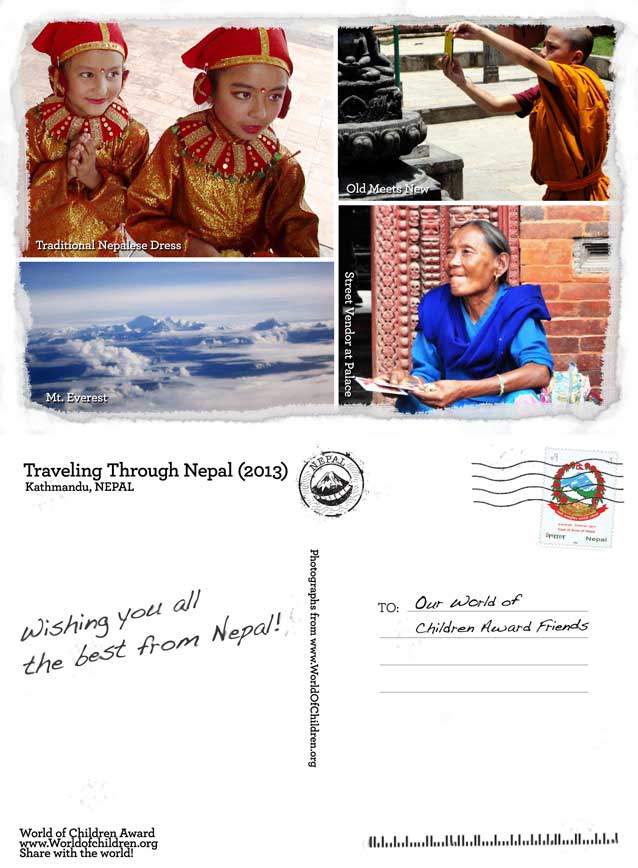Q&A with Douglas Maclagan of CWS Nepal

Imagine the perfect postcard: a pristine lake reflects a village surrounded by rolling green hills and the snow-capped peaks of the Himalaya beyond. Welcome to Pokhara, one of Nepal’s most popular tourist destinations for its prime location near three of the highest mountains in the world.
Yesterday, our team visiting Nepal said goodbye to Dr. Banskota and continued their journey to Pokhara to visit 2009 Health Award Honoree Douglas Maclagan.
In 1995, Douglas founded the Child Welfare Scheme (CWS) to provide education, healthcare and social opportunities for disadvantaged children in Nepal. This year alone, CWS has helped more than 20,000 children.
In between showing us around one of CWS’ clinics and vocational training centers, Douglas took a few moments to talk with us about why he keeps fighting for the children of Nepal in spite of political instability and constant threat of insurgency.
Q: What are some of the challenges you face when working in Nepal?
A: In the past the armed conflict between the Maoist militia and the government forces was a major challenge, but I managed to remain here in the country as one of the few foreign organizations at the time. I believed the people needed me the most during this difficult period from 1996-2007, and it was not right to leave. Since the war ended, though peaceful, the political instability remains, and corruption is still very much evident. This slows our efforts down and unnecessary obstacles need to be passed to achieve our work successfully. Another challenge is that the weakest links of society — vulnerable and victimized women and children — remain the lowest priorities by the government, and previously agreed laws and agreements are not enforced; for example, traffickers are rarely prosecuted successfully, which further sends out the message that human trafficking is OK.

Q: How did the World of Children help expand the impact of the Child Welfare Scheme?
A: The Asha Health Care services in Pokhara needed to become an example of high quality, accessible primary health, which could be affordably replicated by the government as they remain the key development partner of any country. World of Children’s grant to support this — and the setup of a fundraising department to create a more financially sustainable and independent local service — was absolutely key to the continued success of the services provided. On top of this, the fact that I was awarded by the World of Children has helped me promote our work within the government, national and international stakeholders and investors. It’s made the ‘World’ of difference!
Q: With all that you have accomplished, can you share one moment that has stuck with you?
A: In 1999, I came across a desperate mom with her young 3-year-old daughter, Sangita, in the village of Rabaidanda where we had just built a water supply and a day care health center for young children between the ages of 2-6 years old. Sangita was flesh and bone and gasping for her life. In some shock, I told her mom to make the very long journey to Pokhara, where we had a simple office with some spare rooms. She made the 10-hour trek and bus journey.
We accommodated her in our offices by putting a bed in and a stove where she could cook. We then sought the appropriate medical care for Sangita. After months of operations and care, Sangita — who weighed 2.5 kg when she came to us due to an intestinal blockage — was 8 kg and ready to go home.
Sangita and her mother came to the opening of the centre [in 2000]. The most memorable thing of all was seeing Sangita’s smile and happiness to be alive and a normal, active child. As I was holding her, Sangita’s mom came to me and said, “In the village they said you were a kind-hearted man who was trying to do good for all our children, but I think you are taller than a tree that gives us all the shelter we need.”
She lifted my hand, bowed, and rested it on her head, then put it down, smiled, took Sangita proudly, and walked away. This is a moment that will remain with me for life and provides me the ultimate fulfillment. It has driven me to do more and to realize that nothing is more important than to give back.
Share the Journey
Our journey through Nepal continues through Sunday. Stay tuned for more exciting stories and beautiful photos! In the meantime, here’s a postcard from Harry and Kay you can share with your friends:
